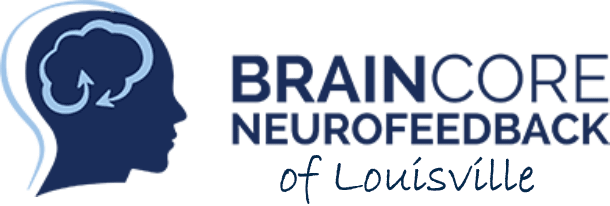4 Common Mental Health Conditions That Benefit From Neurofeedback Therapy

1. Depression
Depression may involve intense feelings of sadness, mood swings, difficultly with concentration, changes in personal habits and interests, and even thoughts of self-harm.
Because neurofeedback allows patients to get a glimpse of what happens in their brains when engaged in certain thought patterns, it's an excellent option for those who live with and want to reduce these symptoms.
Neurofeedback therapy for depression focuses on alpha/theta brain wave training. This helps those with depressive symptoms to train their brains to produce more of the stress-reducing alpha and theta brain waves while counteracting the beta waves responsible for persistent down, sad, or difficult feelings.
A licensed professional then helps patients to develop better coping strategies as they respond to these brain wave patterns, which can improve or diminish them entirely. Patients often find it easier to focus, sleep, maintain a balanced mood, and experience fewer bouts of intense depression with increased training.
2. Anxiety
Characterized by intense feelings of worry or stress, anxiety disorders can be incredibly debilitating and hard on both your body and mind. Neurofeedback therapy can help patients with anxiety by targeting alpha waves to promote feelings of peace and relaxation in the face of a stressful stimulus.
In treatment, you receive immediate feedback on the status of your brainwave patterns. The more you engage in thoughts and coping mechanisms that increase alpha waves, those generally associated with a meditative state, the more the therapy system rewards you with positive stimuli.
Over time, this therapy method builds important emotional resilience for those with anxiety. Neurofeedback encourages patients to respond to anxious thoughts without impulsivity or fear, which can make it easier to manage anxious thoughts and feelings when they come up.
3. Trauma and PTSD
Those who experience discomfort or post-traumatic stress disorder (PTSD) around traumatic memories can benefit from neurofeedback therapy because of the nature of both the condition and the treatment method.
Trauma often manifests as intrusive memories that can cause feelings of intense fear and alarm as a response to a trigger. Neurofeedback can help patients to work through these triggers in a safer, more controlled environment to reduce fearful responses in a much gentler way than other methods, including exposure therapy.
During neurofeedback therapy for trauma and PTSD, both theta and alpha brainwaves are the main focus as the patient develops self-regulation techniques to combat stressful memories. These techniques encourage theta and alpha waves and help patients to calm both the mind and the body when triggers arise and activate peaceful, positive brain patterns as a response.
4. ADHD
Patients with attention-deficit/hyperactivity disorder (ADHD) often experience difficulty with concentration, impulse control, and executive function. In the brains of people with ADHD, delta and theta waves can make it difficult to stay organized, on task, and in control of thoughts and feelings.
Through beta training in neurofeedback therapy, patients can strengthen the same brain wave patterns that are stimulated by many common ADHD medications that improve cognitive processing, overthinking, focus, and creativity. This results in sustained concentration and improved memory, as well as an increased ability to avoid distractions.
For more information on how neurofeedback therapy can work for you, contact BrainCore Therapy of Louisville. Our specialists can help you to determine whether you're a good candidate for this therapeutic method and set you up with an appointment to get started.
Browse Our Website
Contact Information
Phone: (502) 203-7766
Email: info@braincorelouisville.com
Address: 13125 Eastpoint Park Blvd
Suite 105 Louisville, KY 40223
Business Hours
Mon-Fri 8:00am - 12:30pm
3:30pm - 6:00pm
Sat 8:00am - 12:00pm
Our Location
Contact Information
Business Hours
Mon-Fri 8:00am - 12:30pm
3:30pm - 6:00pm
Sat 8:00am - 12:00pm
